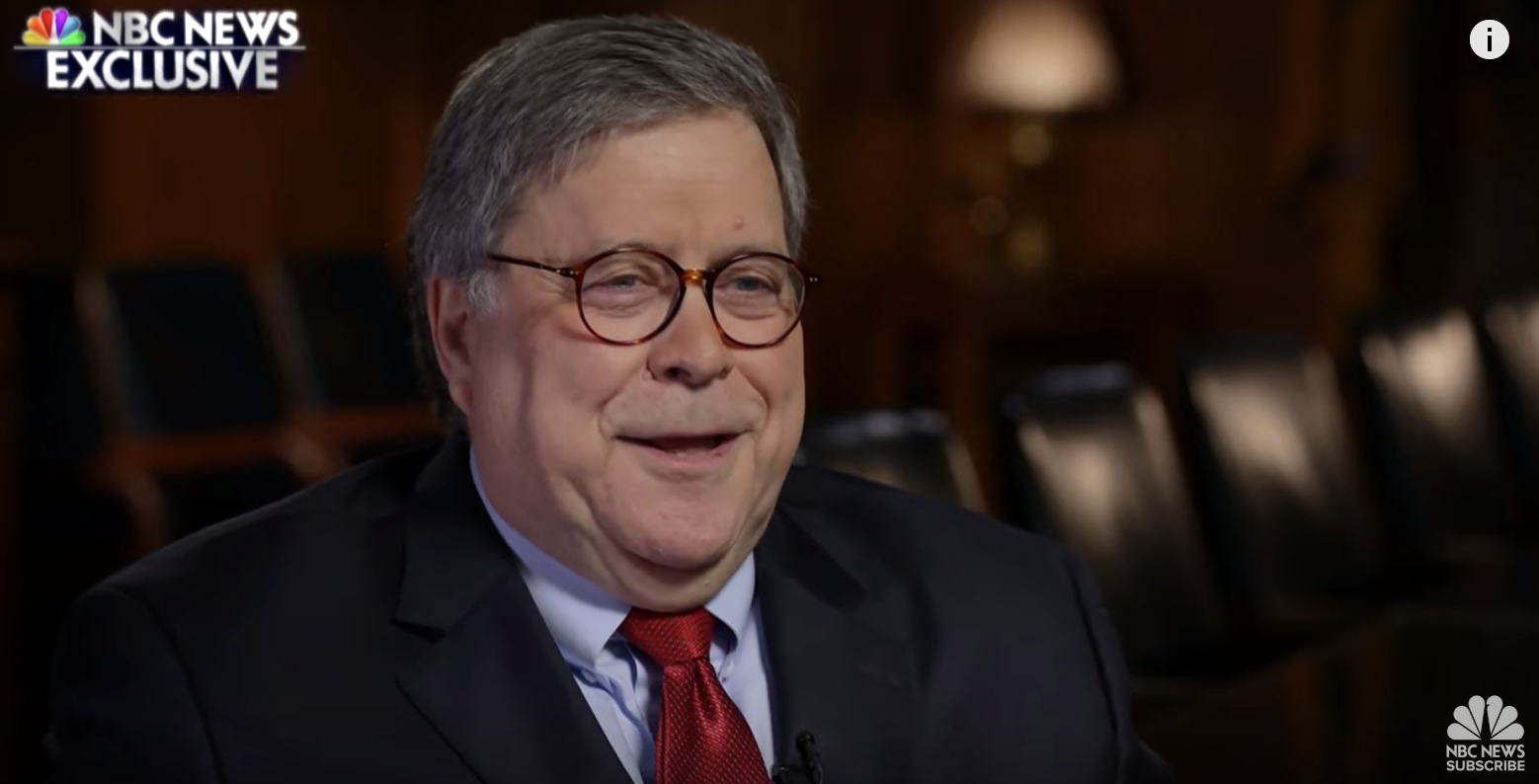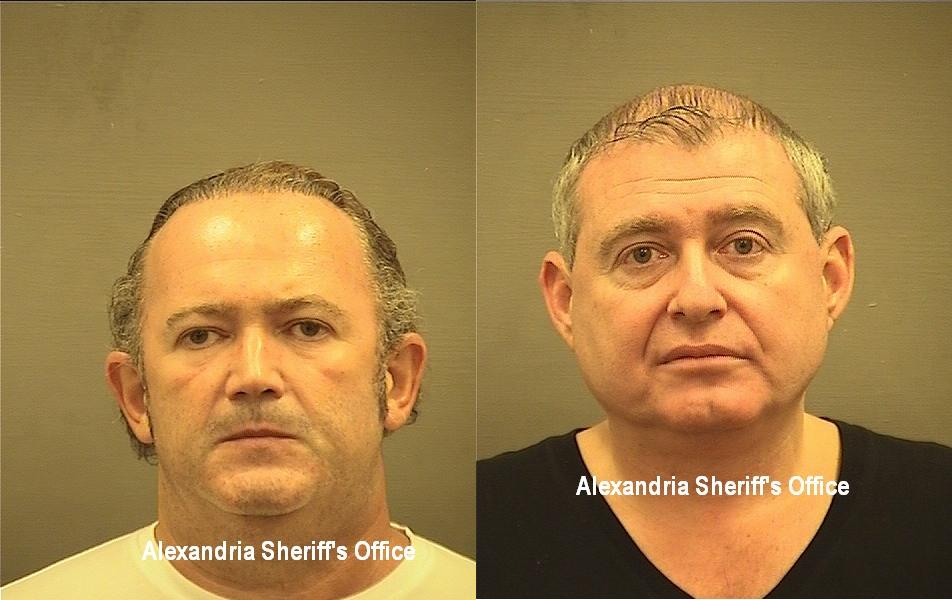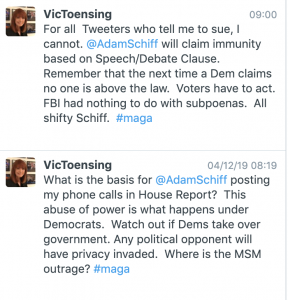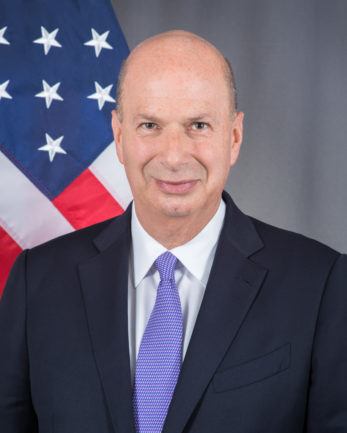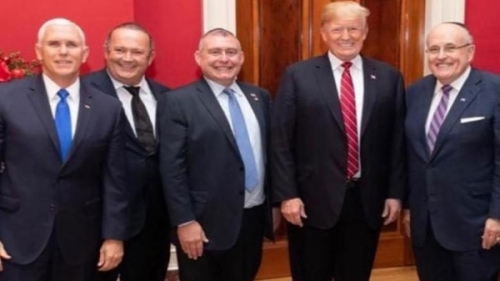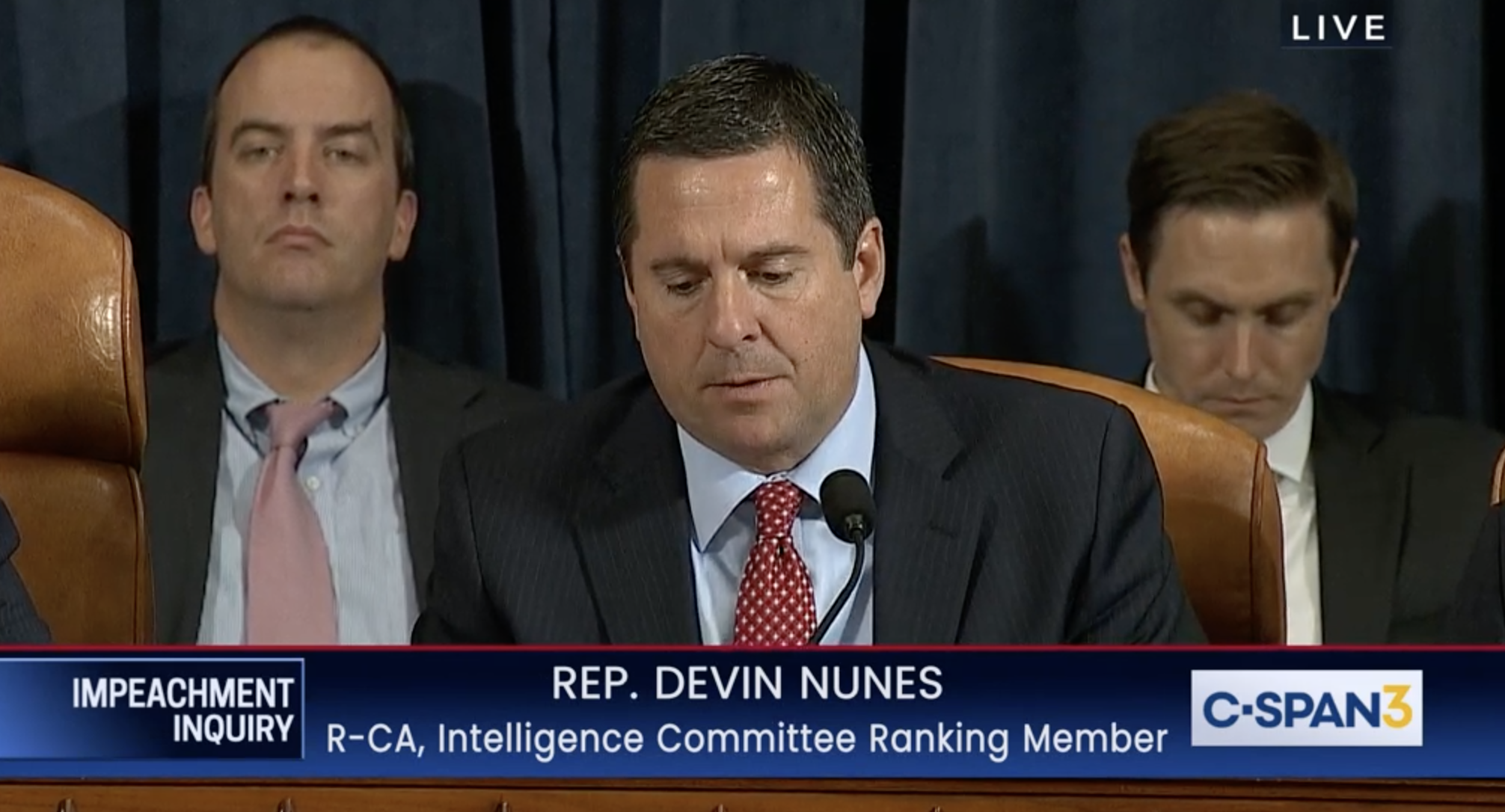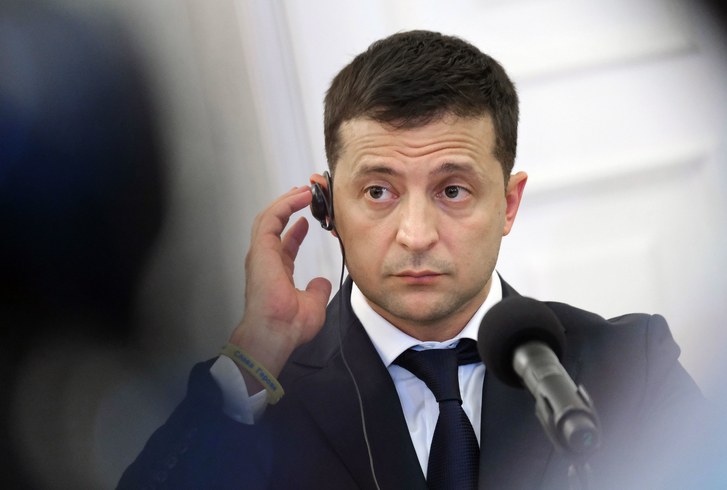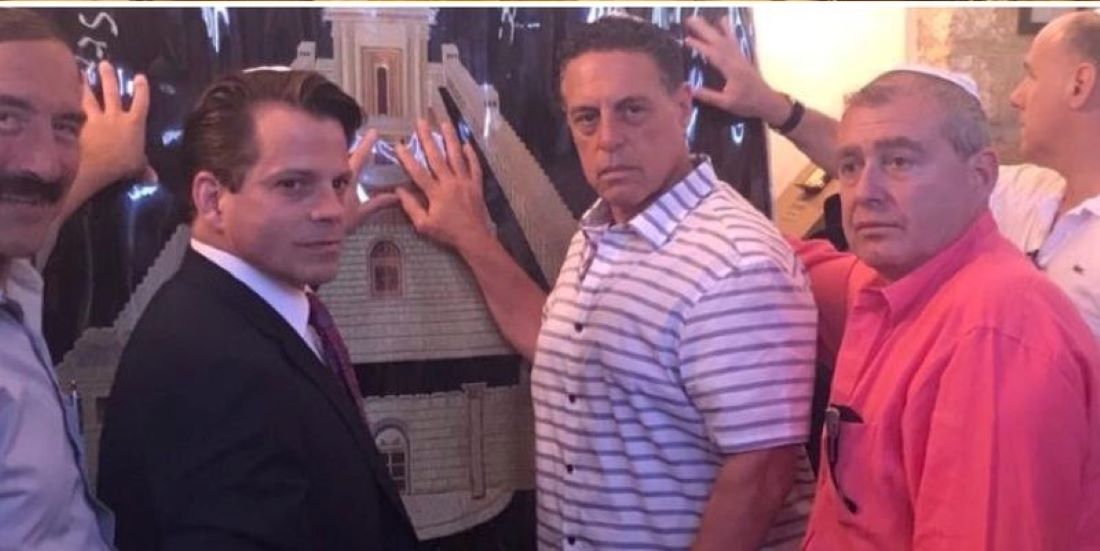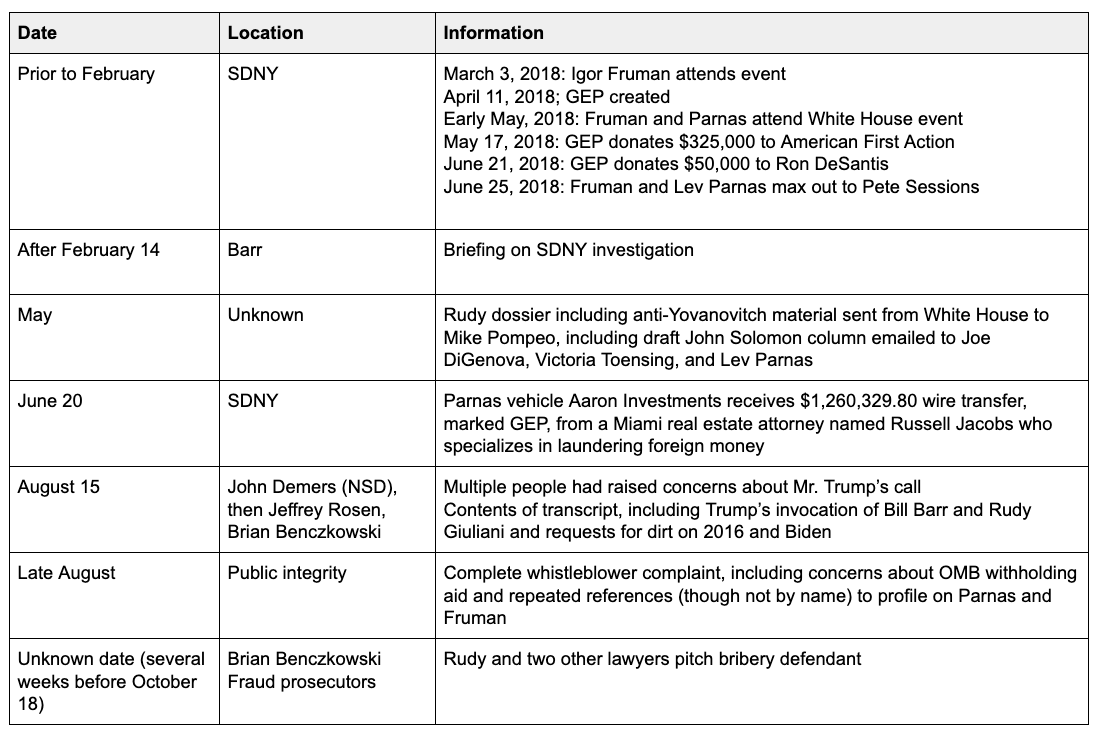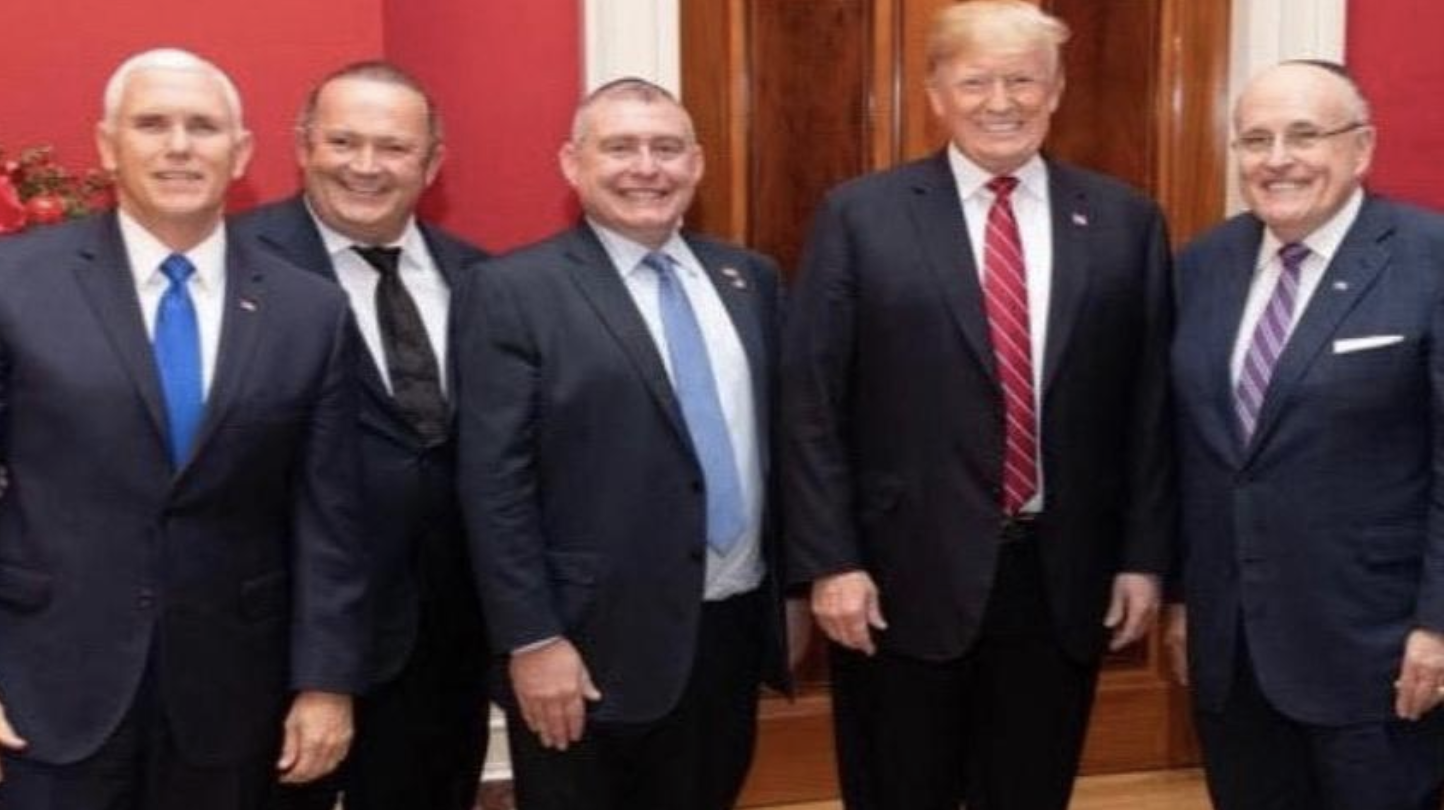American Democracy Needs Better Reporters than Pete Williams
Bill Barr made big news yesterday saying intemperate things in what has charitably been called an “interview” with NBC’s Pete Williams. Those comments have distracted from other details of the so-called interview, which deserve further attention for the way that Williams was utterly useless in guiding the interview towards any of the questions that needed to be answered. Given Barr’s assault on the rule of law, garbage interviews like this undermine the Constitution.
Williams helps Barr continue to cover up his role in the Ukraine investigation
First, consider the exchange that Williams and Barr have to exonerate the Attorney General in involvement in Rudy Giuliani’s Ukraine conspiracy.
Williams: Were you ever asked by the White House to talk to anybody in Ukraine about an investigation of Joe Biden? (18:40)
Barr: No.
Williams: Are you concerned that Ukraine has a missing server from the Hillary Clinton emails?
Barr [searching look]: Fortunately I haven’t gotten into the Ukraine thing. I don’t know. I’m not even sure about the nature of these allegations.
Williams: What about the allegation that it was the Ukrainians who meddled in the election, not the Russians. Are you satisfied that’s not the case?
Barr: I am confident the Russians attempted to interfere in the election. I don’t know about the Ukrainians. I haven’t even looked into it, frankly.
Williams: What was your involvement in the Department’s decision not to investigate the President’s phone call to Ukraine?
Barr: We put out a statement that explained the process, which was the Criminal Division made that decision and in the process consulted with the senior most career employees who are the experts on campaign finance laws and that process was supervised by the Deputy but I’m not going to go beyond what we’ve already said about that process.
Williams: Well, were you satisfied that everything that was done–
Barr: Absolutely.
I wouldn’t be surprised if Williams were using a script DOJ gave him, because Williams asks none of the questions that remain unanswered about DOJ’s role in the Ukraine investigation, such as why they didn’t do the bare minimum of connecting the dots implemented after 9/11, why the didn’t refer the complaint to the FEC, why they didn’t abide by the whistleblower protection act, why (on demand, apparently) they issued a statement exonerating the President, or who the three Ukrainians that DOJ admitted have been fed into John Durham’s investigation are.
Instead, Williams lets Barr ignore his question about his role in reviewing the whistleblower complaint and claim — as the person who knew of the Lev Parnas investigation that also knew of the whistleblower complaint — he has no role in the Ukraine thing. This exchange raises more questions about Barr’s involvement, but Williams instead allows him to claim a clean bill of health.
Williams allows Barr to pretend bypassing MLAT is normal
Perhaps the most alarming part of this so-called interview is how Williams let Barr claim that entirely bypassing the Mutual Legal Assistance Treaty (MLAT) process in requesting law enforcement assistance from other countries is normal.
[Why he went to three countries] The presentation of that in the media [laughs] has been silly. The person running the investigation is John Durham. But this is a very unusual circumstance where we are going to foreign governments where we are asking them to assist and cooperate including some of their sensitive materials and personnel. A US Attorney doesn’t show up on the doorstep of some of these countries like London and say, Hey, I want to talk to your intelligence people and so forth. All the regularities were followed. I went through the — my purpose was to introduce Durham to the appropriate people and set up a channel where he could work with these countries. At the request of these countries — I went through the Ambassadors of each country, and the governments wanted to initially talk to me to find out, what is this about, what are the ground rules, is this going to be a criminal case, are you going to do a public report. They wanted to understand the ground rules before I met with Durham and I met with them and I set up appropriate channels. This was perfectly appropriate. (14:37)
This issue goes to the core of the problem with Trump’s Ukraine conspiracy. Barr’s nervous answer suggests he knows bypassing normal process might implicate him in a criminal conspiracy.
And Williams, supposedly a DOJ beat journalist who should know better, just lets this bullshit answer sit there, unchallenged.
Williams allows Barr to lie about techniques used by the FBI
Barr’s attack on the FBI is based on a lie about how it operates. The FBI has what’s called the Domestic Investigations and Operations Guide. The entire point of it is to make sure paperwork is filed before any investigative steps are taken. Barr turns that on its head when he complains that the FBI opened an investigation before taking an investigative step.
They jump right into a full-scale investigation before they even went and talked to the foreign officials about exactly what was said the opened an investigation of the campaign
The DIOG lists what an agent can do at each of three levels of investigation — assessment, preliminary investigation, and full investigation. It permits the government to use Confidential Human Sources — the basis for most of Barr’s complaint about “spying” on the campaign — at the Assessment level (which is basically a tip). Thus, in spite of what Barr says, the fact that FBI opened this as a full investigation (which DOJ IG found to be proper) had nothing to do with the FBI’s ability to use informants.
Suggests the investigation shouldn’t have been sustained once it got opened (0:20)
There has to be some basis before we use these very potent powers in our core First Amendment activity, and here, I thought this was very flimsy (2:18)
The Department as a rule of reason, … Is what you’re relying on sufficiently powerful to justify the techniques you’re using
What are the alternatives … When you step back and ask what was this all based on, it’s not sufficient (2:48)
they used very intrusive techniques they didn’t do what would normally be done under those circumstances, which is to go to the campaign and certainly there were people in the campaign who could be trusted including a member of the Senate Judiciary Committee and the governor of New Jersey (5:13)
Anyone covering DOJ has an obligation to point out that this is a lie, especially because Barr has never in his history leading the DOJ complained about such techniques being used with others, especially minorities, when exercising their First Amendment rights. Indeed, Barr’s DOJ currently investigates not only Muslims in mosques (which has been going on under both parties), but people protesting Trump’s immigration policies or legally representing immigrants. Barr’s DOJ used a wiretap in a garden variety leak investigation when it already knew the leaker this year. Williams has an obligation with calling Barr out for his very selective concern about the First Amendment.
But that’s not the only complaint about process. Barr keeps demanding not just that the FBI give Trump a defensive briefing (one of the subjects of the investigation, Mike Flynn, attended his first campaign briefing, and that was within days of the time Flynn inked his deal to become an undisclosed agent of Turkey), but that they just waltz to the campaign and start asking questions.
From day one they say they’re not going to talk to the campaign, they’re going to put people in there, wire them up, and have these conversations with people involved in the campaign because that way we’ll get the truth (8:44)
Barr would never let FBI approach any other investigation like this, starting by allowing the subject of the investigation to excuse their actions.
Note, one of the people Barr thought FBI should have asked — Jeff Sessions — ultimately came to be a subject of this investigation.
Barr takes this so far that he complains that John Brennan and Barack Obama tried to limit an ongoing Russian attack that was going on whether or not Trump’s flunkies were involved.
What I find particularly inexplicable is that they talked to the Russians but not to the Presidential campaign. On August 4 Brennan braced the head of Russian intelligence, he calls the head of Russian intelligence, … they go and confront the Russians, who clear are the bad guys, and they won’t go and talk to the campaign and say what is this about (5:51)
He’s basically complaining, here, that Obama tried to keep the country safe from hostile interference in the election.
And Williams just sat there looking at his list of questions like a child.
Williams lets Barr minimize what happened in the Russian investigation
Predictably, Barr minimizes what the Russian investigation showed. He claims that what has subsequently been explained to be a suspected Russian asset with ties to both sides of the Russian operation, Joseph Mifsud, telling George Papadopoulos they were going to drop emails that later got dropped was not worthy of investigation.
In May 2016, a 28 year campaign volunteer says in a social setting … a suggestion of a suggestion that Russians had adverse information from Hillary that they might dump in the campaign (3:24)
Barr then claims there was no evidence of “collusion,” something Williams agrees with.
There never has been any evidence of collusion … completely baseless (2:57) [Well, it doesn’t turn out that way at the beginning, at the start ]
According to Mark Meadows’ definition of “collusion,” it was proven by the guilty verdict in the Roger Stone trial. Moreover, the Mueller Report makes it clear there was evidence not just of “collusion,” but also conspiracy, just not enough to charge. In this case, Williams affirmatively adds to the disinformation on this point.
Barr conflates the investigation into Carter Page and everyone else
Barr did something that the Republicans have been doing all day: conflating the investigation into Carter Page with the investigation into Trump’s other flunkies, in spite of the fact that the investigation of each individual was also individually predicated and that the investigation into Page was based off stuff going back years before he joined the Trump campaign and most of the investigative activities took place after he was fired from the campaign. In one comment, Barr literally conflates Carter Fucking Page with the President himself, and ignores that the President was only investigated after he tried to obstruct the investigation into Mike Flynn.
At that point [when FBI talked to Steele’s source], when their entire case collapsed, what did they do? They kept on investigating the President well into his administration. (10:26)
He repeats that claim a second time.
Their case collapsed after the election (13:57)
Barr not only does that, but ignores the incriminatory evidence against Page, so as to be able to claim that the investigation should never have started.
From the very first day of this investigation, which was July 31 … all the way to September 2017, there was not one bit of incriminatory evidence to come in, it was all exculpatory. The people they were taping denied any involvement with Russia, denied the very specific facts that the FBI was relying on, … the FBI ignores it, presses ahead, withholds that information from the court, withholds critical exculpatory information from the court (9:07)
Barr made an interesting claim — that the sole reason the FBI got a FISA (including a physical search FISA, which allows them to obtain stored communications like email) was to access his comms from the campaign.
I think going through people’s emails, which they did as a result of the FISA warrant, they went through everything from Page’s life. … his emails go back. The main reason they were going for the FISA warrant initially was to go back historically and seize all his emails and texts … that’s exactly why they got the FISA (12:30)
That may be true (obviously, the FBI would have wanted to know why Page went to Moscow during the campaign), but DOJ imposed minimization procedures to limit dissemination of those materials.
The final PMPs restricted access to the information collected through FISA authority to the individuals assigned to the Crossfire Hurricane team and required the approval of a DAD or higher before any FISA-derived information could be disseminated outside the FBI. In normal circumstances, the FBI is given more latitude to disseminate FISA-derived information that appears to be foreign intelligence information or evidence of a crime. Evans told us that he believed these added restrictions were warranted here because of the possibility that the FISA collection would include sensitive political campaign related information.
Barr’s conflation of Page with the campaign as a whole and Trump himself was all a ploy, and a journalist could have noted the game Barr was playing in real time. Williams did not.
Williams lets additional Barr bullshit go unquestioned
In addition to those general problems, Barr made a number of other bullshit assertions. For example, Barr claimed the investigation into Trump was the first counterintelligence investigation into a candidate even though that’s what the Hillary email investigation was.
Greatest danger to our free system is that the incumbent use apparatus of state to spy and effect outcome, first time in history this has been done (1:14)
Later, Williams lets a renowned authoritarian to claim not just that he cares about civil liberties, but that his primary job is protecting them.
[In response to Williams’ suggestion that this authoritarian cares about civil liberties] I think our nation was turned on its head for three years based on a completely bogus narrative that was largely fanned and hyped by an irresponsible press … the Attorney General’s primary responsibility is to protect against the abuse of the law enforcement and intelligence apparatus and make sure it doesn’t play an improper role in our political life. That’s my responsibility. (18:06)
Barr poo poos the regularity of illegal foreign money coming into campaigns.
In most campaigns signs of illegal foreign money coming in (2:01)
Don’t assume campaign is acting in league with foreign powers, there has to be some basis (2:13)
This makes me, for the first time, concerned about how DOJ rolled out the Andy Khawaja indictment.
Finally, Williams asks, but doesn’t follow up on his question about whether it was appropriate for Durham to make a comment.
[After Williams mentions the grand jury] I think it was definitely appropriate because it was necessary to avoid public confusion. … Durham’s work was not being preempted, Durham was doing something different, (15:33)
Interestingly, Barr effectively confirmed Williams’ insinuation this was now a grand jury investigation, which would amount to sharing grand jury information.
I have been pointing out increasingly often that many members of the press seem uninterested in defending the parts of the Constitution that don’t directly affect press protections. The duty to uphold the rule of law is particularly important for DOJ reporters, who should know enough about how investigations work to identify when something is abnormal (as Barr’s direct involvement, generally, is, to say nothing of his international field trip).
Williams was not up to the task in this interview.

